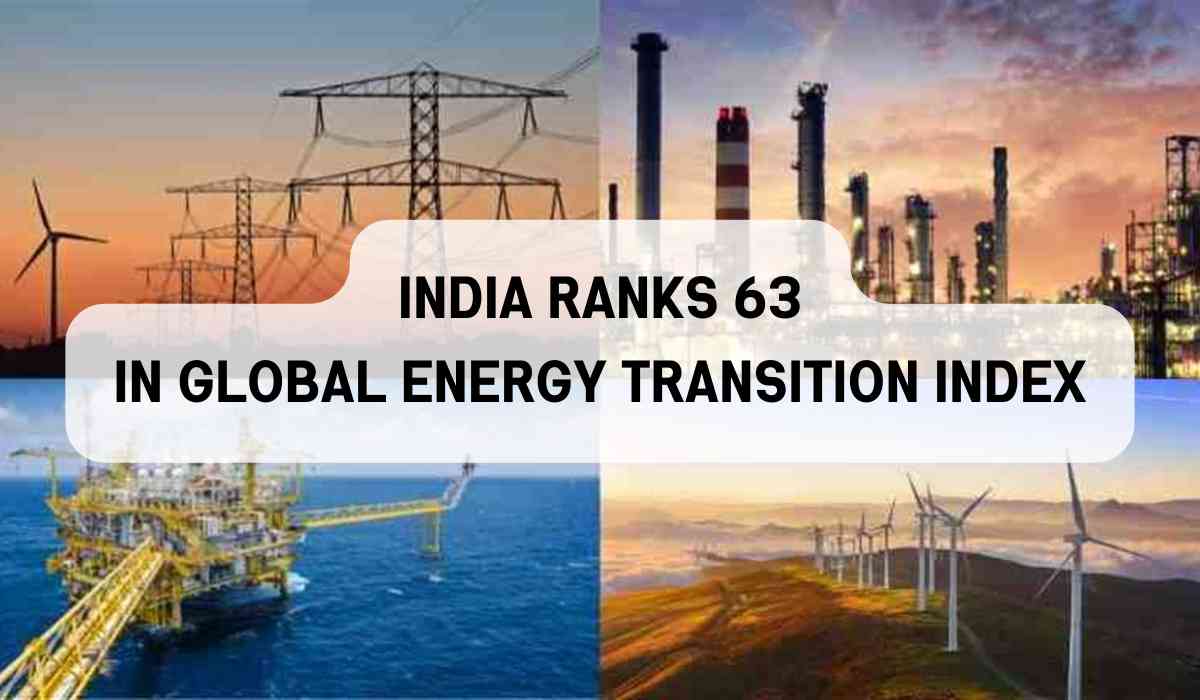India has been ranked 63rd in the Global Energy Transition Index, showcasing its progress in modernizing the energy system and expanding renewable energy sources.
The ranking reflects improvements from last year's 67th position and highlights areas where India can further enhance its transition to sustainable energy. The World Economic Forum's latest index, released on June 19, 2024, emphasizes Sweden's continued leadership in energy transition while noting India's strides in energy equity, security, and sustainability.
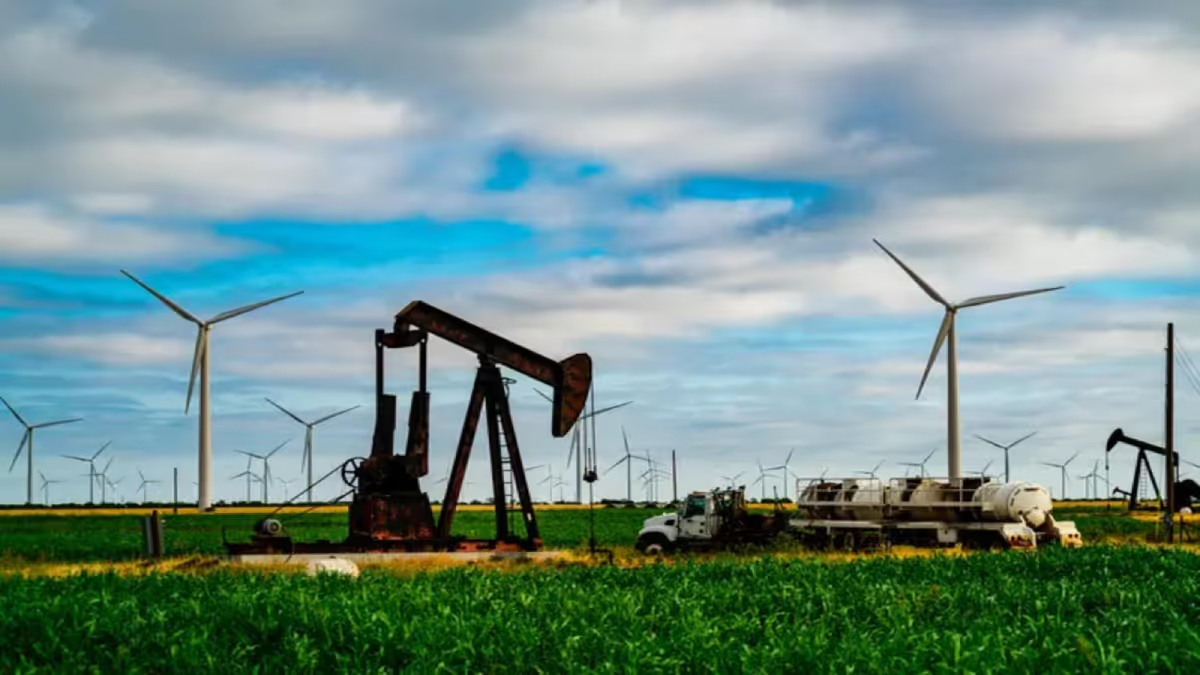
India’s Progress in Energy Transition
India received praise from the WEF for its proactive steps in promoting sustainable energy, particularly solar power. The country's advancements in energy security, equity, and long-term sustainability underscore its growing significance in global energy transformations.
Currently, renewable sources, including biomass, account for 42% of India's total energy potential. In parallel, other nations are emulating the United States by ramping up investments in green hydrogen and expanding their electric vehicle fleets.
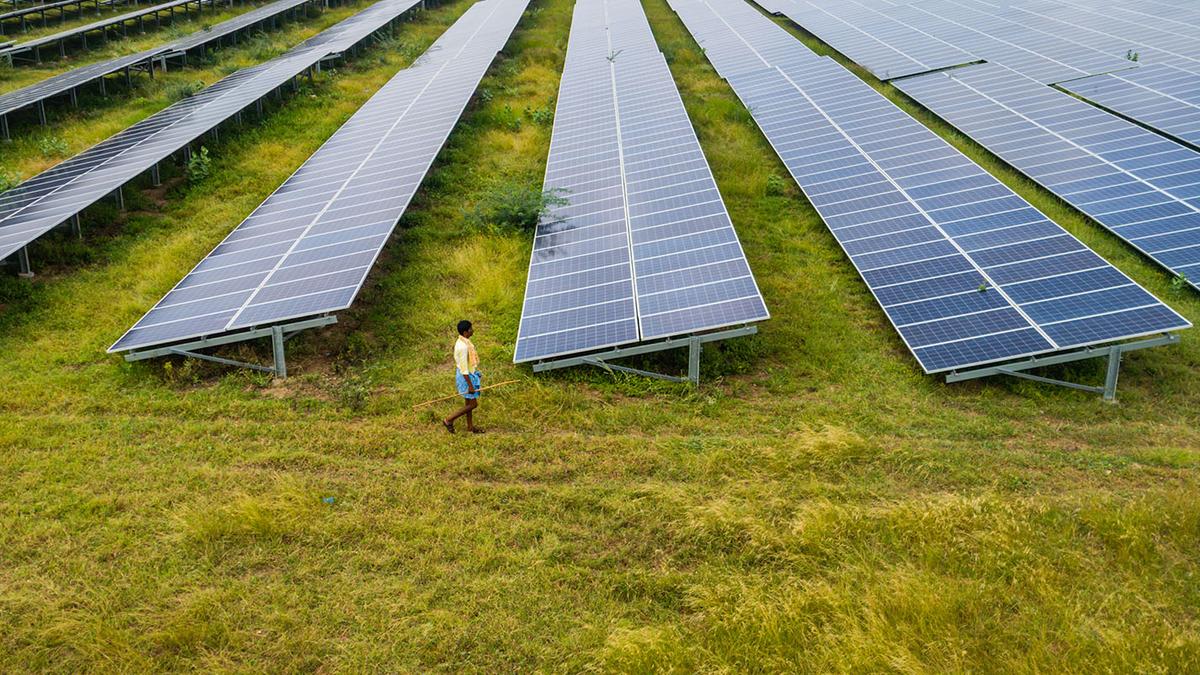
What is the Global Energy Transition Index?
The WEF and Accenture collaborated to create the Index, which evaluates countries' readiness and progress in transitioning to sustainable, resilient, and equitable energy systems.
It assesses various factors such as government policies, energy security, sustainability initiatives, and carbon emission reductions.
The Index aims to monitor global advancements in reducing reliance on fossil fuels and enhancing energy efficiency.
The WEF Energy Transition Index monitors how well nations are advancing towards an inclusive, secure, and sustainable energy future.
It focuses on governmental strategies to reduce carbon emissions from energy production, promote non-fossil fuel sources (like solar and wind power), and decrease overall energy consumption per unit of output.
Energy intensity measures the energy needed to produce a specific output or activity. Lower energy intensity indicates more efficient energy use, benefiting the environment positively.
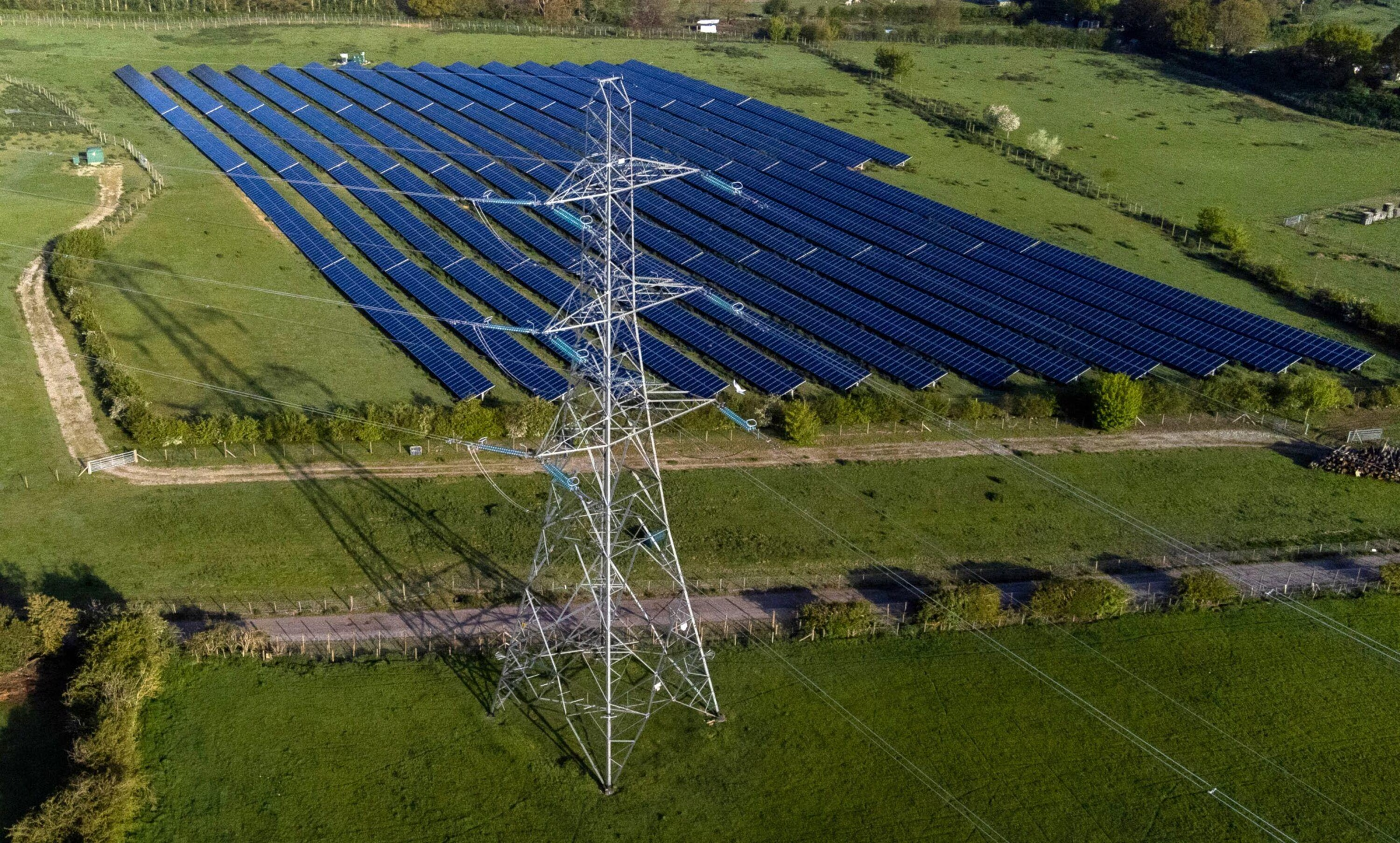
2024 Global Energy Transition Index
In 2024, European nations dominate the top ranks of the Global Energy Transition Index:
-
Sweden
-
Denmark
-
Finland
-
Switzerland
-
France
China holds the 20th position, while India ranks 63rd.
The World Economic Forum's report highlights that despite challenges such as economic volatility and geopolitical tensions, 107 out of 120 countries have shown progress in their energy transition over the past decade.
The report underscores the critical role that India and China, with nearly one-third of the global population, will play in this transition.
The WEF has praised India's efforts in promoting non-fossil energy sources like solar power, suggesting that India's successes could serve as a model for other regions.
Who prepares the Global Energy Transition Index?
The Global Energy Transition Index is released each year in the WEF's 'Fostering Effective Energy Transition' report, produced in collaboration with Accenture. This index assesses countries' advancements and readiness in creating a fair, secure, and sustainable energy landscape.
It monitors governmental policies aimed at decreasing carbon emissions, advocating non-fossil fuel energy sources, and improving energy efficiency.
What is World Economic Forum?
Founded in 1971 by Klaus Schwab, a German economist, the World Economic Forum (WEF) operates as a non-profit international organization. Its headquarters are located in Cologny, Switzerland.
Foundation
Founded: 1971
Founder: Klaus Schwab, a German economist
Headquarters of WEF: Cologny, Switzerland
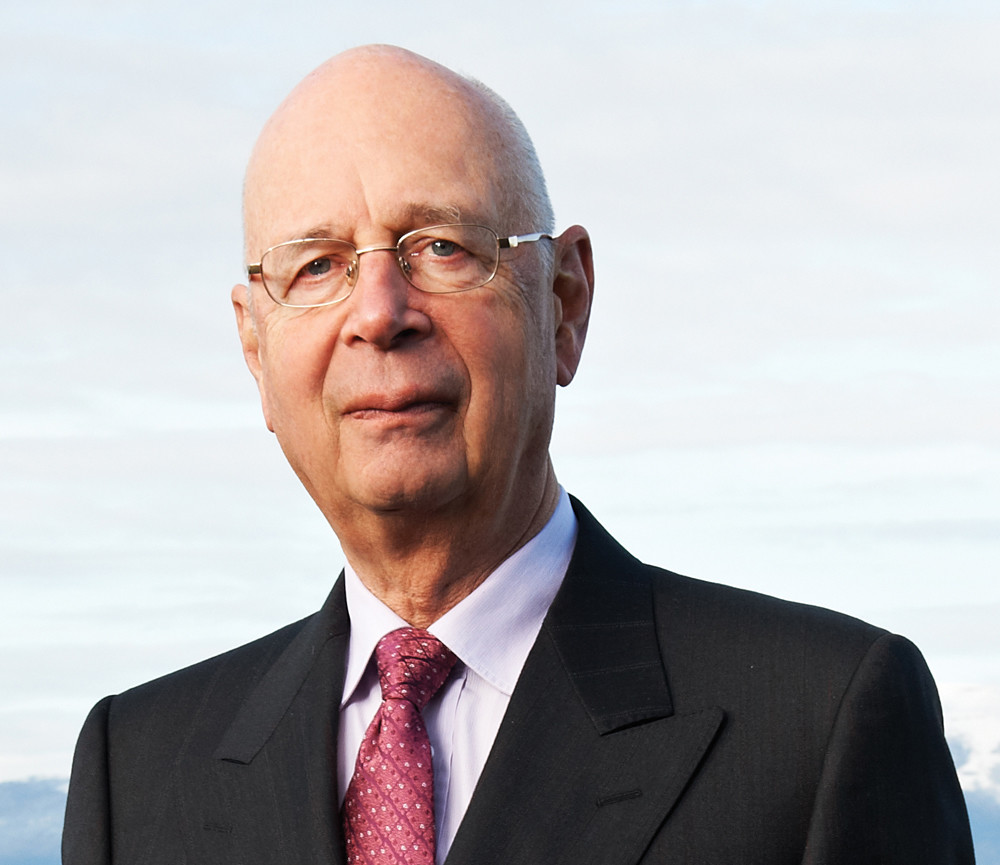
Report Released by WEF
As a leading research organization, WEF publishes several influential reports including:
-
Global Gender Gap Report
-
Global Competitiveness Report
-
Energy Transition Index
-
Global Travel and Tourism Report
-
Global IT Report (in collaboration with INSEAD and Cornell University)
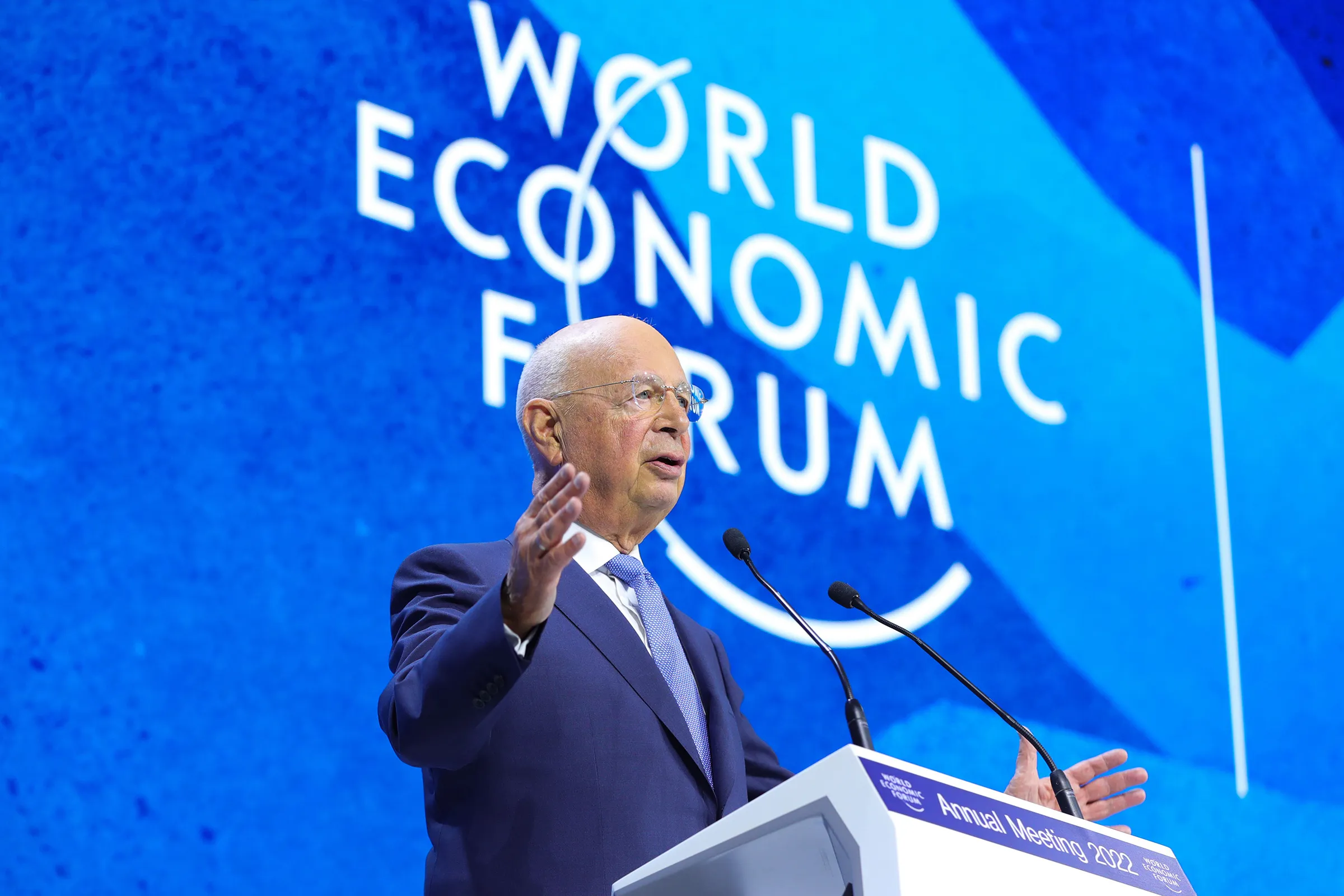
Purpose
-
Collaboration Platform: Facilitates cooperation among business, political, academic, and other leaders to address global challenges.
-
Global Issues: Focuses on shaping global, regional, and industry agendas to improve the state of the world.
Key Activities
-
Annual Meetings: Hosts annual meetings in Davos, Switzerland, bringing together global leaders from various sectors.
-
Reports and Research: Publishes influential reports like the Global Gender Gap Report, Global Competitiveness Report, Energy Transition Index, and Global IT Report.
-
Initiatives: Launches initiatives and partnerships to address issues such as climate change, economic development, and social inclusion.
Overall Mission
-
Improving the State of the World: Aims to drive impactful actions through public-private cooperation and innovative solutions for global progress.
-
Potential for Transformation: Developing countries like India, China, and Brazil show improvement, offering an opportunity to reshape energy demand.
-
Reverse Innovation: Developing countries can lead in transformative energy solutions, leveraging frugal, scalable innovations originating from developed nations.
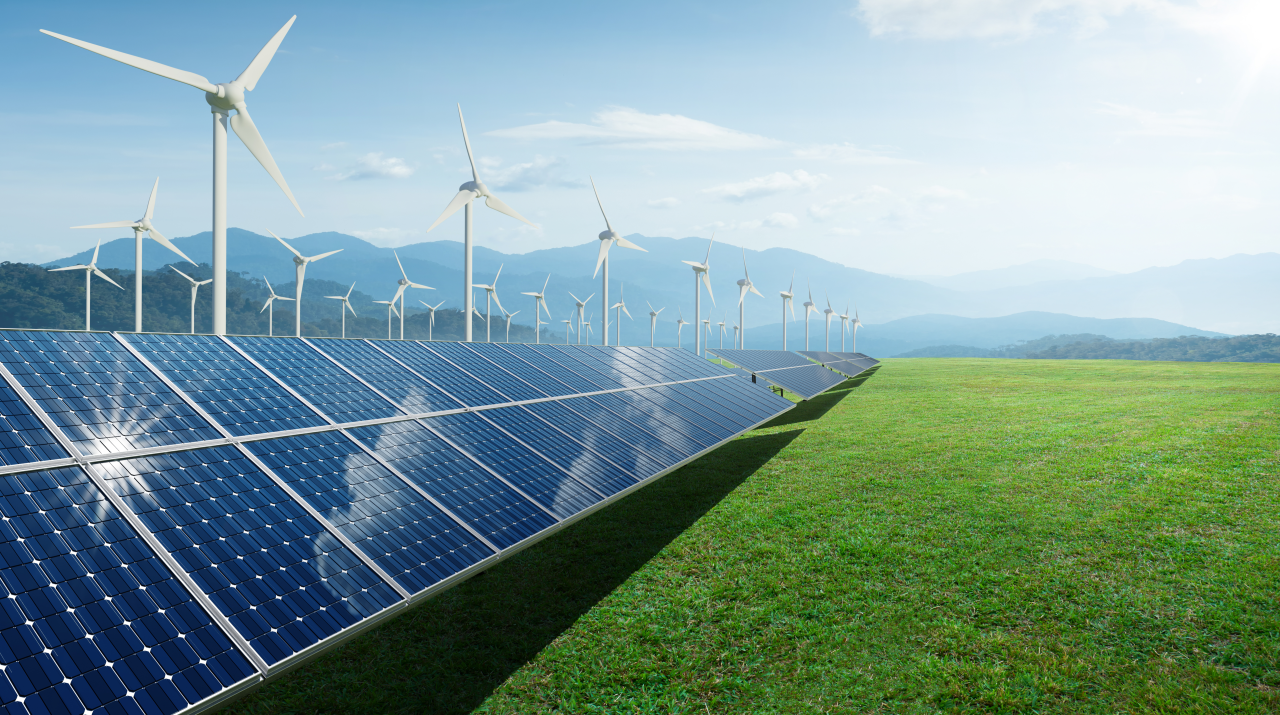
Role of India and China
-
Leading Initiatives: India is spearheading initiatives replicable elsewhere, with notable progress in energy equity, security, and sustainability.
-
Critical Players: With a third of the global population, India and China play pivotal roles in renewable energy adoption and green tech manufacturing.
India's Clean Energy Initiatives
-
Renewable Focus: India's renewable and biomass energy constitutes 42% of its power generation capacity, positioning it as the fourth-largest renewables market globally.
-
Investments: Annual investments nearing $10 billion drive electric vehicle adoption and green hydrogen production. However, coal dependency remains a challenge.
Focus on Affordability and Viability
-
Income Generation: India emphasizes leveraging energy for income generation and supporting microenterprises through renewable energy utilization.
-
Sustainable Practices: Efforts underscore India's commitment to promoting sustainable energy practices benefiting local communities and driving economic growth.
Challenges and Opportunities
-
Decoupling Growth from Energy Demand: India aims to decouple growth from energy demand, necessitating significant investment in energy efficiency alongside infrastructure development.
-
Slowing Transition: While innovation growth has slowed globally, countries like China and India lead in developing new energy solutions, despite challenges in balancing transition facets.
Implications and Recommendations
The WEF suggests that other nations can replicate India’s policies and innovative initiatives for a green energy transition. Despite progress, the report urges further efforts to reduce coal usage and emissions, emphasizing the potential of green technology in shaping the future of energy systems globally.
Progress in Emerging Asia
Emerging and developing Asian countries, including India and China, exhibit an 8% improvement in Energy Transition Index scores over the past decade, primarily in reducing energy intensity.
With inputs from agencies
Image Source: Multiple agencies
© Copyright 2024. All Rights Reserved Powered by Vygr Media.

